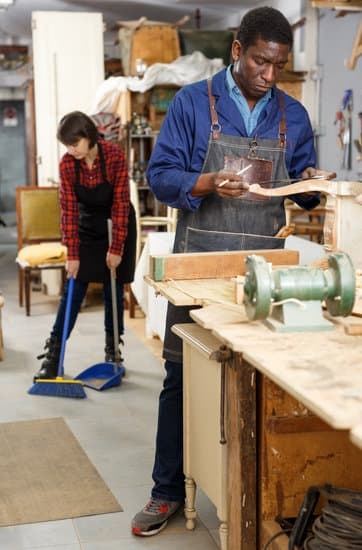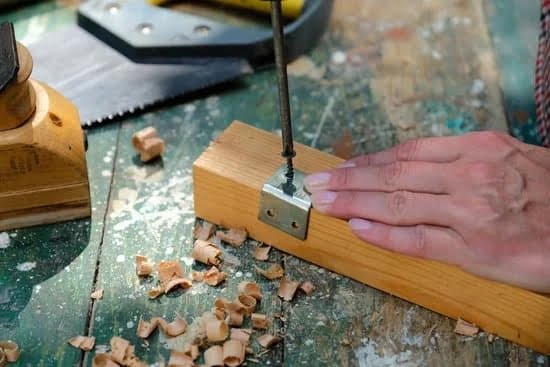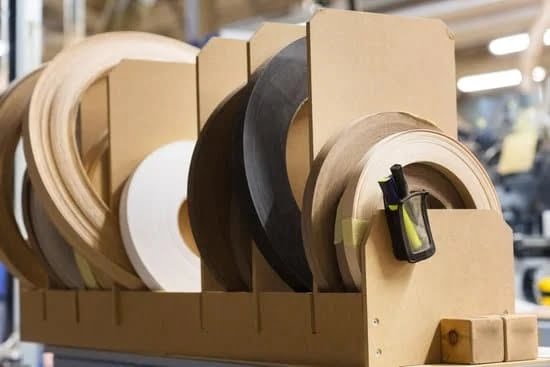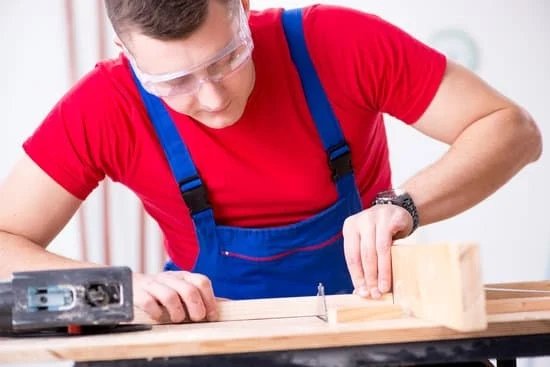Woodworking is a rewarding and creative hobby or profession that requires precision, skill, and the right tools for the job. Whether you are a beginner or an experienced woodworker, having the proper tools for woodworking is essential to ensure the success of your projects. From measuring and cutting to shaping and finishing, the right tools can make all the difference in achieving a high-quality result.
Having the necessary tools for woodworking not only makes tasks easier but also helps in ensuring safety and accuracy. The market today offers a wide range of tools specifically designed for woodworking, ranging from traditional hand tools to modern power tools. With advancements in technology, woodworkers now have access to a variety of innovative tools that can enhance their craftsmanship and efficiency in creating beautiful pieces of work.
In this article, we will explore the different types of tools for woodworking that every woodworker should have in their workshop. From essential hand tools like chisels and hand saws to power tools such as drills and sanders, we will provide a detailed guide on what each tool is used for and how it can benefit your woodworking projects.
Additionally, we will discuss specialty tools for advanced projects, safety equipment to protect yourself while working, accessories like clamps and sharpening stones, factors to consider when choosing the best tools, as well as tips on maintaining and caring for your precious woodworking toolbox.
Essential Hand Tools for Woodworking
When it comes to woodworking, having the right tools is essential for creating high-quality projects. Hand tools are a fundamental part of any woodworker’s toolkit, allowing for precision and intricate work that may be challenging with power tools. Some of the essential hand tools for woodworking include chisels, hand saws, planes, rasps, files, and carving tools.
Chisels are versatile tools that come in various shapes and sizes, used for shaping wood or removing excess material. Hand saws are crucial for making straight or curved cuts in wood, with options such as crosscut saws, rip saws, and dovetail saws available.
Planes are used for smoothing surfaces and refining edges, while rasps and files are ideal for shaping and finishing intricate details on wooden pieces. Carving tools are essential for creating decorative elements and fine details in woodworking projects.
Having these essential hand tools in your workshop allows you to have full control over the creative process and produce finely crafted pieces of furniture or other wooden items. They complement power tools by providing precision and detailed work that may be challenging to achieve with machinery alone. Investing in quality tools for woodworking ensures that you can enjoy working on your projects while achieving professional results.
| Hand Tool | Description |
|---|---|
| Chisels | Versatile tools used for shaping wood or removing excess material. |
| Hand Saws | Essential for making straight or curved cuts in wood. |
| Planes | Used for smoothing surfaces and refining edges. |
Power Tools Every Woodworker Should Have in Their Workshop
Power tools play a crucial role in woodworking, providing precision, speed, and efficiency in various tasks. Whether you are a beginner or a seasoned woodworker, having the right power tools in your workshop can significantly enhance your woodworking projects. Here is a detailed guide on some essential power tools every woodworker should consider investing in:
Power Drill
A power drill is a versatile tool that can be used for drilling holes, driving screws, and even sanding with the right attachments. Look for a corded or cordless drill with variable speeds and adjustable clutch settings for more control over the drilling process.
Circular Saw
A circular saw is essential for making straight cuts in various types of wood. Opt for a saw with adjustable depth and bevel settings for more flexibility in cutting different angles and depths.
Jigsaw
A jigsaw is ideal for making curved cuts or intricate designs in wood pieces. It is lightweight and easy to maneuver, making it perfect for detailed work like cutting out patterns or trimming edges.
Investing in quality power tools for woodworking can make your projects more manageable and efficient. Remember to prioritize safety when using these tools by wearing appropriate gear such as safety glasses and hearing protection. With the right combination of hand tools and power tools at your disposal, you’ll have everything you need to bring your woodworking ideas to life with precision and skill.
Specialty Tools for Advanced Woodworking Projects
Advanced woodworking projects often require specialized tools that go beyond the basics. These specialty tools are designed to handle specific tasks with precision and efficiency, making them essential for serious woodworkers looking to take their craft to the next level. From intricate joinery to curved cuts, these tools can help you achieve professional results in your projects.
One important specialty tool for advanced woodworking is the dovetail jig, which is used to create strong and beautiful dovetail joints. This tool simplifies the process of cutting dovetails by guiding your router or saw along precise angles, ensuring a perfect fit every time. Another must-have tool for advanced woodworkers is the router table, which allows for more control and stability when shaping edges, cutting grooves, or creating intricate patterns.
In addition to these tools, advanced woodworkers may also benefit from investing in a bandsaw for detailed curved cuts, a mortiser for precision mortise and tenon joints, and a lathe for turning wooden pieces. Each of these specialty tools plays a crucial role in expanding your capabilities as a woodworker and opens up new possibilities for creative expression in your projects.
By equipping yourself with the right tools for woodworking, you can tackle even the most challenging tasks with confidence and skill.
| Specialty Woodworking Tool | Description |
|---|---|
| Dovetail Jig | A tool used to create precise dovetail joints with ease. |
| Router Table | Provides stability and control when shaping edges or creating patterns. |
| Bandsaw | Ideal for detailed curved cuts in woodworking projects. |
Safety Equipment and Gear
Woodworking can be a rewarding and fulfilling hobby or profession, but it also comes with its fair share of safety risks. It is essential to prioritize your safety while working with tools for woodworking to prevent accidents and injuries. This section will highlight the importance of using proper safety equipment and gear to protect yourself in the workshop.
Protective Gear
One of the first things every woodworker should invest in is protective gear. This includes items such as safety glasses, hearing protection, dust masks, and gloves. Safety glasses are crucial for protecting your eyes from flying wood chips, sawdust, or other debris.
Hearing protection can help prevent long-term damage from prolonged exposure to loud power tools. Dust masks are essential for filtering out harmful dust particles that can cause respiratory issues. Gloves can provide added protection when handling sharp objects or rough surfaces.
Workshop Safety Practices
In addition to wearing protective gear, practicing safe workshop habits is equally important. Always make sure your work area is well-lit and clutter-free to prevent tripping hazards. Keep all tools clean, sharp, and properly maintained to reduce the risk of accidents caused by dull blades or malfunctioning equipment.
When using power tools, follow manufacturer instructions carefully and never bypass safety features like blade guards or safety switches. It’s also essential to be mindful of where your hands are at all times to avoid accidental contact with cutting edges or moving parts.
First Aid Kit
Accidents can happen even with the best precautions in place, so it’s crucial to have a well-stocked first aid kit in your workshop. Make sure your kit includes items like bandages, antiseptic wipes, adhesive tape, scissors, cold packs, and any necessary medications for specific conditions you may have. Knowing how to administer basic first aid can make a significant difference in the event of an injury while woodworking.
Must-Have Accessories for Woodworkers
Woodworkers rely not only on their primary tools but also on a range of accessories to help them achieve precise and efficient results in their projects. From holding pieces in place securely to maintaining the sharpness of cutting edges, these accessories play a crucial role in the woodworking process. Here is a detailed guide on some must-have accessories for woodworkers:
- Clamps: Clamps are essential for securing wood pieces together during assembly, gluing, or clamping edges for routing. There are various types of clamps available, including bar clamps, C-clamps, and spring clamps, each serving different purposes in woodworking projects.
- Sharpening Stones: Keeping your tools sharp is essential for achieving clean cuts and smooth finishes. Sharpening stones come in various grits and materials like oil stones, water stones, and diamond stones. Regular maintenance with sharpening stones ensures that your chisels, planes, and other cutting tools remain in optimal condition.
- Workbench Vise: A sturdy workbench vise provides a stable platform for working on your projects. Whether you need to saw, chisel, or plane wood, a reliable vise will hold your workpiece securely in place while allowing you to focus on the task at hand.
In addition to these essential accessories, woodworkers may also find other items beneficial such as measuring tools like tape measures and rulers for precision cuts or layout tasks. Depending on the type of projects you undertake, investing in quality accessories can significantly improve the efficiency and quality of your work. By utilizing these tools for woodworking appropriately, you can elevate your craftsmanship and achieve professional results in your creations.
How to Choose the Best Tools for Woodworking
When it comes to woodworking, having the right tools is crucial for achieving high-quality results. With the countless options available on the market, choosing the best tools for your woodworking projects can be a daunting task. To ensure that you invest in tools that meet your needs and preferences, consider the following factors:
- Budget: Determine how much you are willing to spend on tools for woodworking. While quality tools may come with a higher price tag, they are often more durable and provide better performance in the long run.
- Project requirements: Consider the type of woodworking projects you typically work on. Some projects may require specialized tools while others can be completed with basic hand tools.
- Skill level: Your skill level as a woodworker will also influence the types of tools you need. Beginners may benefit from starting with a few essential hand tools before investing in power tools.
Additionally, think about the ergonomics and comfort of the tools, as well as their brand reputation and customer reviews. By carefully considering these factors, you can make informed decisions when selecting tools for your woodworking endeavors.
- Brand reputation: Look for reputable brands that have a track record of producing high-quality tools for woodworking. Research customer reviews and feedback to gauge overall satisfaction with the products.
- Ergonomics and comfort: Since woodworking often involves repetitive motions, choose tools that are comfortable to use over extended periods of time. Ergonomically designed handles and grips can help reduce fatigue and strain on your hands.
- Durability and warranty: Invest in durable tools that are built to last through years of heavy use. Check if the manufacturer offers warranties or guarantees on their products to protect your investment.
By taking into account these factors and conducting thorough research before making any purchases, you can ensure that you choose the best tools for woodworking that align with your needs, preferences, and budgetary constraints. Remember that investing in quality tools is an investment in both your craft and your safety while working on woodworking projects.
Maintaining and Caring for Your Woodworking Tools
Woodworking tools are essential investments for any woodworker, and proper maintenance and care are crucial to ensure their longevity and effectiveness. By keeping your tools in good condition, you not only prolong their lifespan but also guarantee the quality of your work. One of the most important tips for maintaining woodworking tools is to keep them clean and free from debris. Regularly remove sawdust, dirt, and other particles that can affect the tool’s performance.
In addition to cleanliness, it is also important to properly store your woodworking tools in a dry and secure location. Moisture can lead to rust and corrosion which can damage the metal components of your tools. To prevent this, consider investing in a toolbox or tool cabinet where you can organize your tools neatly. Another helpful tip is to apply a light coat of oil or wax to metal surfaces to protect them from oxidation.
Furthermore, regularly inspect your woodworking tools for any signs of wear or damage. Replace any worn-out parts immediately to prevent accidents or injuries during use. Additionally, sharpening blades and edges when needed is essential for optimal performance. By following these simple tips and tricks for maintaining and caring for your woodworking tools, you can ensure that they remain in top condition for years to come, allowing you to create beautiful projects with precision and ease.
Conclusion
In conclusion, investing in quality tools for woodworking is an essential aspect of any woodworker’s craft. From the essential hand tools to the power tools and specialty tools for advanced projects, having the right equipment at your disposal can greatly improve the quality and efficiency of your work. Using the right tools not only ensures precision and accuracy but also enhances safety in the workshop, allowing you to focus on creating beautiful pieces without compromising on your well-being.
When it comes to choosing the best tools for woodworking, there are several factors to consider. Firstly, assessing your skill level and the type of projects you typically work on can help determine which tools are necessary for your specific needs.
Additionally, considering the quality and durability of the tools will ensure that they last longer, saving you money in the long run. Lastly, researching different brands and reading reviews can help guide you in making informed decisions when expanding your collection of tools for woodworking.
Furthermore, maintaining and caring for your woodworking tools is crucial in prolonging their lifespan and ensuring optimal performance. Regular cleaning, sharpening blades when necessary, and storing tools properly can prevent rusting or damage, ultimately saving you time and money on replacements.
By investing in quality tools, understanding how to choose the right ones for your projects, and taking proper care of them, you can elevate your woodworking skills to new heights and enjoy a fulfilling experience in creating pieces that reflect your craftsmanship and passion for this timeless art form.
Frequently Asked Questions
What Tools Do You Use for Woodworking?
In woodworking, I use a variety of tools such as saws, chisels, hammers, screwdrivers, sanders, and routers. Each tool serves a specific purpose in shaping and crafting wood to create beautiful pieces.
What Equipment Is Needed for Woodworking?
The equipment needed for woodworking includes power tools like table saws, drills, planers, and jointers. Additionally, hand tools like measuring tapes, squares, clamps, and levels are essential for accurate and precise work in woodworking projects.
What Is the Number One Tool in Woodworking?
The number one tool in woodworking is often considered to be the table saw. It is a versatile tool that can make rip cuts, crosscuts, miter cuts, bevel cuts, and more. The table saw is fundamental in creating straight and accurate cuts in various types of wood for different woodworking projects.

Hi everyone! I’m a woodworker and blogger, and this is my woodworking blog. In my blog, I share tips and tricks for woodworkers of all skill levels, as well as project ideas that you can try yourself.





